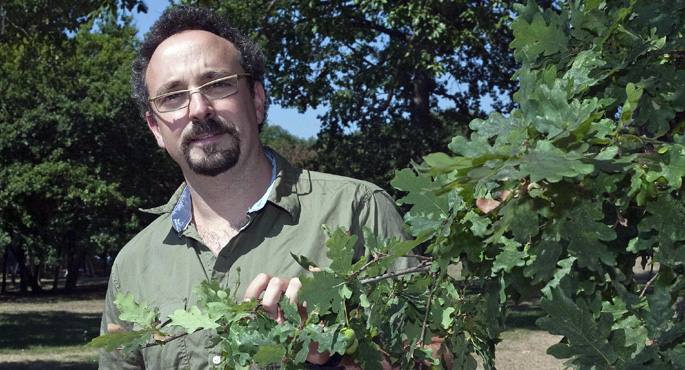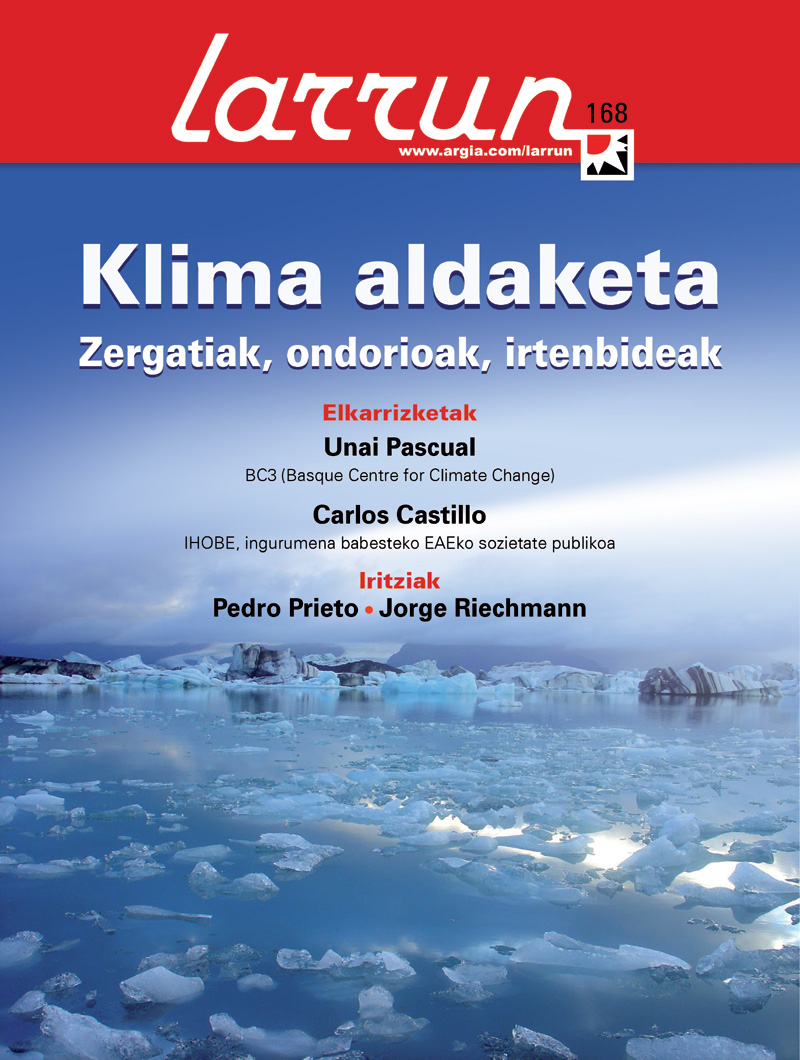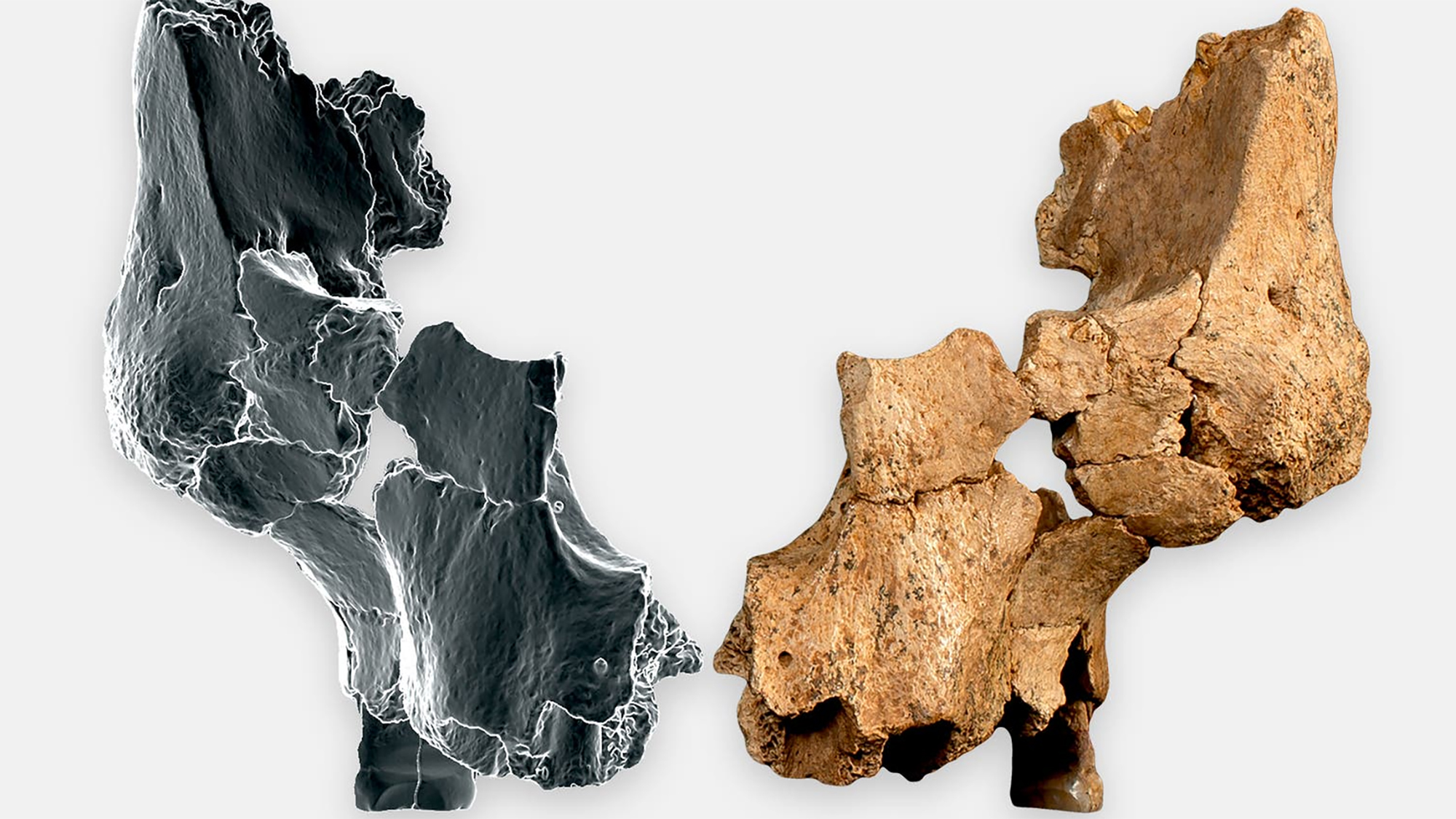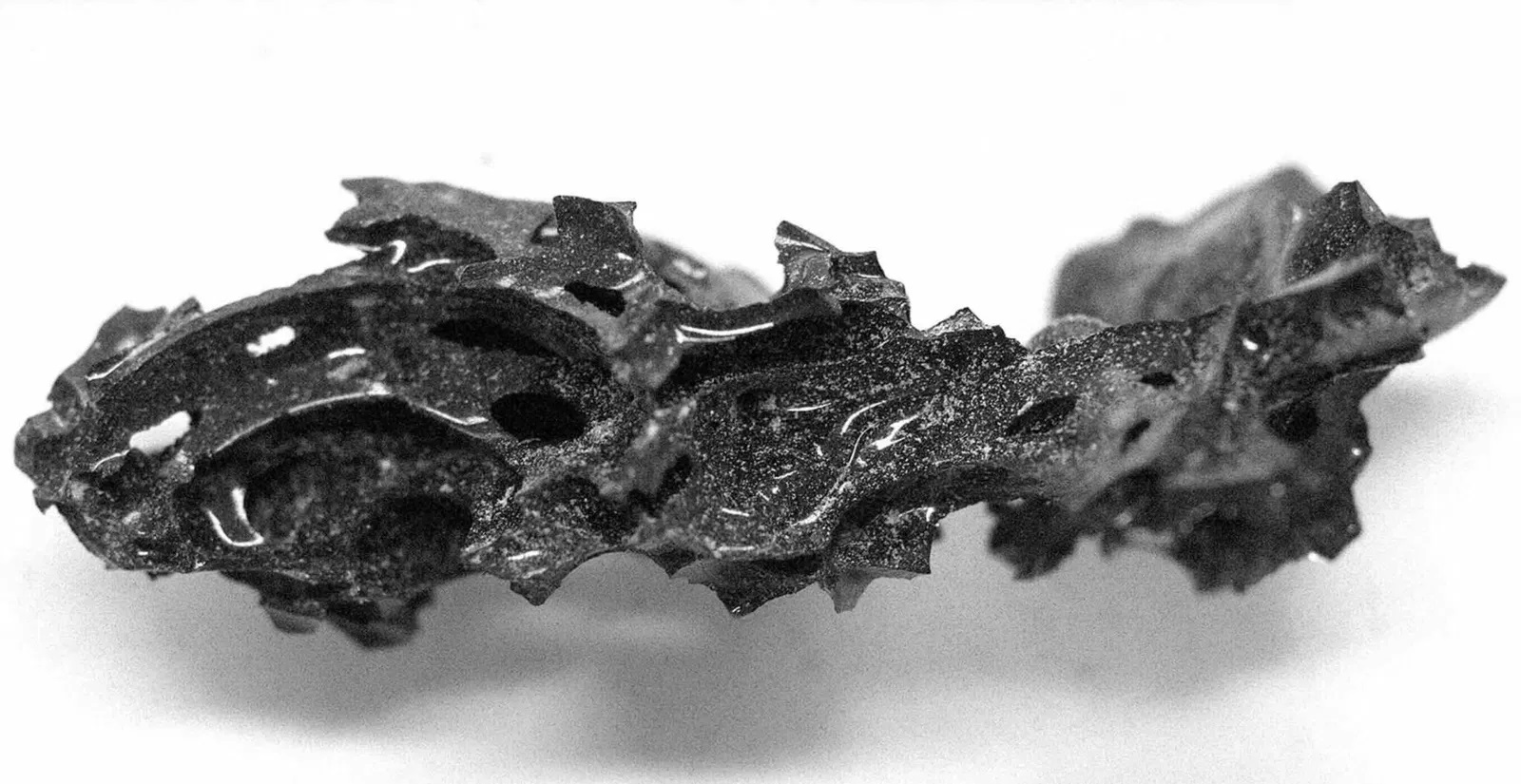"Material and energy decline is needed to address climate change"
- The economist Unai Pascual works at the BC3 International Center. All aspects of climate change are dealt with at BC3, but with special attention to the social field, as he explained to us.

Twenty years ago, at the Rio 92 summit, the first foundations were laid for tackling climate change. How do you value what you've done since then?
We had to do a lot more. Politicians have not soaked as much as they had to wet. However, another reading must be made: it is very difficult to implement multilateral systems in the world. Do we have another system? No. We do not have a global environmental organization dealing with these issues, which can force countries to do this or that. Therefore, one part of the assessment is that much less has been done than had to be done, and another part is that the multilateral system we have is not the best, but mere maintenance is triumph.
The commitments made under the Kyoto protocol have not been fulfilled, but, in any case, was the starting point good? The target was for emissions to reach 95% of 1990 by 2012. Was that enough, even if it had succeeded?
No, it wasn't that much. But Kyoto is the first political step. Now comes the second stage, and the only ones who agree to implement it are the European Union, Liechtenstein, Belarus, Norway and Ukraine.
Discharges for this period will take place at the December congress in Doha.
Yes, and you can predict what kind of meeting you're going to have. The Copenhagen Summit in 2009 was a great defeat. Political commitments were made, but not legal ones. And at the recent meeting in Bangkok it has been seen that no one is prepared to meet the levels of landfill agreed in Copenhagen. Towards Doha, underdeveloped countries are pushing for Clean Development Mechanisms (CDM). GGM allows developed countries to invest in programmes that reduce gas emissions in non-developed countries, giving them credit for continuing emissions in their countries. In Bangkok, the undeveloped countries, seeing that the political promises of Copenhagen are not going to be fulfilled, began to threaten the breakdown of the GGM.
However, GMMs have not managed to reduce their emissions.
Ethically, GGM is like buying the jaw. In any case, we have to recognise that climate change is global and that emissions here and there are the same. First of all, we have to assume that the aim is to put a barrier to discharges. How can we ensure that this barrier is not overcome? That is the second step. To do so, you can create markets, you can create emissions trading. It's a good idea scientifically. We criticize the dumping becoming merchants, but if that can help not overcome that barrier, welcome.
Does the barrier of dumping have to be established by politicians?
There are scientific studies, and then politicians decide where to set the limit. It is scientifically said that if the Earth heats up more than two degrees, there would be serious problems. The political goal is not to go from two degrees to two degrees, but for many scientists climbing two degrees is a tremendous barbarity, because they believe that nothing, or very little, should be raised. Politicians know that we are at an irreversible stage, that warming is taking place, and on an accelerated basis. So what we have to achieve now is not to go through those two grades, and that is what was decided in Cancun. Politically and scientifically we can no longer defend “climate change no”. It's happening, and we've already bought the card to continue with climate change over the next 50 years. By 2050, a reduction in CO2 emissions of 90-95% would be required in order not to exceed two degrees. In other words, reduce emissions to 10% of current emissions.
But that will not be possible.
In the United States, in the United Kingdom -- they start saying it wouldn't be a bad idea to start discussing the three grades. And the third world says, no, two degrees and a half, we're already experiencing climate change, and we're going to suffer it in the next few decades, because even if there's a 90 percent drop, we're going to get to two degrees. Since Copenhagen, the developed countries have been politically committed. Even if these commitments had been met, the world would heat three degrees to 2100. Compromises are not enough to stop the rise by two degrees. No one believes that they will be met, but we are on a three-degree hike, because commitments do not represent a 90% cut. Finally, the EU has announced an 80% drop by 2050. You said it, yes, but ...
The energy model is at the heart of the debate. In this respect, the development of renewable energy is a fundamental element. But can renewables solve the problem?
We can't think that with the fetishism of economic growth that we have in this world, that's going to bring us welfare. We need to talk about sustainable renewable energies. Being renewable does not mean that they are ecologically sustainable. Wind farms everywhere, is that sustainable? Can we maintain the current economic model with renewables? Technically, I don't know, I don't know what the consequences would be. But the question should not be that, but how we should change the economic model, leaving aside the fetishism of growth, and in that transformation renewables, one cannot go without the other.
Can effective action be taken against climate change if the economic paradigm is not changed?
I am sure not. Look, we'll change the model, that's clear, the question is how. We should control that change, so that it's smooth, or we're going to hit a big deal.
How will that blow be carried out?
It can be an ecological collapse, there can be big changes in geopolitics. On the one hand, if we don't stop climate change, the biophysical effects of climate will be very important. Famines, wars...If we don't stop, we're going to ruin. That's what most scientists say.
In short, what should we do to address climate change? What are the real solutions in the context in which we are?
A transition should be made, and this is my personal point of view, towards a material and energetic decline. And degrowth does not mean that economic growth needs to be lowered. It can continue to grow economically, but it does not have to be a materialistic growth, which needs energy and raw materials. That is the only realistic solution, in my view.
What role would the possible global organization to which reference has been made play in this transition?
On the one hand, the guarantee of doing things right. On the other hand, to propose ideas. One idea would be to introduce a CO2 tax, but at source, that is to say, to producers. This tax would reach the consumer who, first of all, would consume less. And you'd realize the distribution of the family budget ... The percentage of the energy budget, in the total of our families, is very small, should be much higher, taking into account the ecological and social benefit of energy production and consumption. The introduction of such a tax would reduce the consumption of energy-intensive products. That would be the first impulse of the transition. Of course, that single measure would not solve everything. But economically, it's the key.
Nortasuna Sarean jardunaldien 10. edizioa egingo dute asteazken honetan Donostiako San Telmon, KomunikaziONA bideguruatzean izenburupean. Egungo komunikazio joerak aztertu eta "alternatiba osasuntsuagoak" topatzen saiatuko dira. Hainbat hizlari gonbidatu dituzte, euren... [+]
Orain dela 20 bat urte, berrikuntzaren inguruan master bat egin nuen. Bertaraturiko gonbidatu batek esan zigun gizakion historian berrikuntza teknologikoaren eragile handiena gerra izan zela. Gerra, halaber, eragile handia da botere harremanen berrikuntzan.
Berrikuntzaz ari... [+]
Punto Bobo liburuaren irakurketan murgilduta, Itxaso Martin Zapirain egilearen Eromena, Azpimemoria eta Isiltasunak Idazten ikerketa lanean sentitu nuen egiazkotasun eta maila etikoarekin egin dut berriz ere topo. Eta hortaz, hara bueltatu. “Oihu izateko jaio zen isiltasun... [+]
Puntueusek eta Cyberzaintzak elkarlanean ikusentzunezko baliabide pedagogiko bat sortu dute gazteentzat eta haiekin lan egiten duten profesionalentzat: irakasle, guraso eta hezitzaileentzat. Ikusentzunezko honen bidez, ziberjazarpena ezohiko ikuspegi batetik... [+]
Aranzadi Zientzia Elkarteko Etnografia Sailaren zuzendari berria da Maite Errarte Zurutuza (Beasain, 1995), urrian Fermin Leizaolaren lekukoa hartu ondoren. Kultura materiala aztertzen jarraitzeko beharra azpimarratu du, gizartearen memoria eta bizimodu aldaketak erregistratzeko... [+]
Aspaldi pertsona oso zatar bat ezagutu nuen, urrun izatea komeni den pertsona horietako bat. Bere genero bereko pertsonengana zuzentzeko, gizonezkoengana, “bro” hitza erabili ohi zuen. Edozein zapaltzeko prest zegoen, bere helburuak lortzeko. Garai hartatik hitz... [+]
La bajona kolektibo kide Heiko Elbirak salatu du psikiatriak zisheteroarautik aldentzen diren erotikak kontrolatu nahi dituela.
Atapuercako aztarnategian hominido zahar baten aurpegi-hezur zatiak aurkitu dituzte. Homo affinis erectus bezala sailkatu dute giza-espezieen artean, eta gure arbasoek Afrikatik kanpora egindako lehen migrazioei buruzko teoriak irauli ditzake, adituen arabera.
Chão de Lamas-eko zilarrezko objektu sorta 1913an topatu zuten Coimbran (Portugal). Objektu horien artean zeltiar jatorriko zilarrezko bi ilargi zeuden. Bi ilargiak apaingarri hutsak zirela uste izan dute orain arte. Baina, berriki, adituek ilargietan egin zituzten motibo... [+]
Sare sozialetan badira zenbait pertsona eragin gaitasun handikoak. Jarraitzaile ugari dute, eta euren iritziak egiatzat hartzen dira. Askok, ordea, egia barik, interes propioa edo klase baten interesak iraunkortzea bilatzen dute. Ameriketan komentokrata deitzen zaie. Alegia,... [+]
79. urtean, Vesubio sumendiaren erupzioak errautsez eta arrokaz estali zituen Ponpeia eta Herkulano hiriak eta hango biztanleak. Aurkikuntza arkeologiko ugari egin dira hondakinetan; tartean, 2018an, gorpuzki batzuk aztertu zituzten berriro, eta ikusi zuten gizon baten garuna... [+]
Ortutik itzuli berritan erabaki nuen Twitterretik alde egitea, oraindik Twitter zenean. Auzolan batera joan nintzen, brokoliak eta azaloreak landatzera, eta mindfulness efektua zapuztu zidan algoritmoak, idazle feminista transgorrotatzaile baten txioak jaurtitzearekin... [+]
Iragana ulertzen saiatzen eta etorkizuna bideratzen, oraina joaten zaigu zenbaiti. Nire proiektuetako bat (hasi baina landu ez dudana oraindik) dudan zuhaitz genealogikoa egitea da. Horretan lagunduko didan liburutxo bat ere erosi nuen. Baina, hain da handia lana, liburutxoa... [+]

















